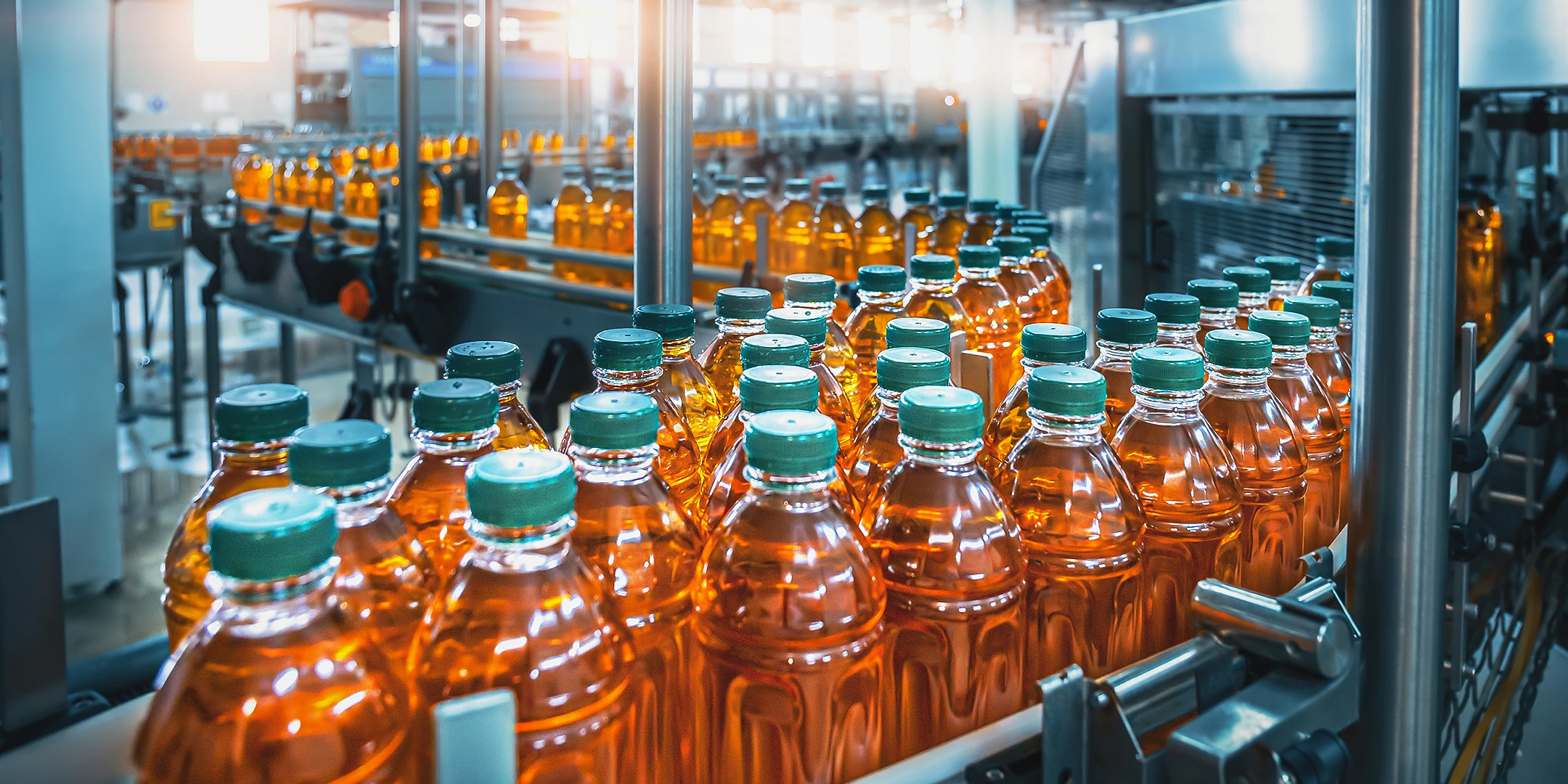
IFS Food Certification – Ensuring safe food
The IFS Food certification is the authoritative standard for inspecting companies in the food industry and worldwide retail trade. IFS stands for International Featured Standard. This standard promotes effective food safety management. In this article, we explain in detail how companies can implement the IFS standard to meet safety and quality requirements, optimise the efficiency of their operations, and improve the trust of their customers and suppliers.
Digital solutions can also optimise processes in this important area during digitalisation. Our free e-book on HSQE management outlines what options are available.
The big book of digital HSQE management
Find out in detail how a comprehensive software solution can support you in the area of HSQE!

Introduction to IFS Food certification
The IFS Food certification is an essential standard designed to ensure the safety, quality, and integrity of food on a global level. As part of the certification, companies undergo an audit to check whether they comply with the IFS requirements.
Objectives and benefits of IFS Food certification
The IFS Food certification aims to significantly increase food safety and product quality through strict criteria. When food is produced, processed, or packaged in accordance with these standards, companies effectively position themselves as responsible players in a globally competitive market. This not only strengthens consumer confidence but also consolidates the company’s credibility and quality image in the long term.
Importance of IFS Food certification for companies in the food industry
IFS Food certification is essential for food manufacturers to survive on the market. The certification, recognised by the Global Food Safety Initiative (GFSI), ensures that companies can survive and develop in national and international competition. The certification increases the quality and safety of food and strengthens consumer confidence in compliance with global safety standards.
Challenges in food safety
The challenges for companies regarding food safety begin with the thorough preparation for IFS Food certification, the preliminary audit that takes place beforehand. Here, an external auditor examines your company thoroughly to uncover possible weak points.
Companies must introduce, review, and adapt internal processes regarding the IFS requirements. This affects all business areas, such as procurement, production, storage, sales, and hygiene. They must also ensure that all employees are trained accordingly, either verbally or by using a digital solution.
Requirements of IFS Food Certification
The IFS Food certification includes specific requirements and standards defined in seven core areas. These areas are essential for ensuring safety and quality in food processing and production.
Senior Management Responsibility
Senior management’s targeted, active commitment creates a corporate culture based on the IFS standards. Managers must provide the necessary resources and ensure that all employees are appropriately qualified. They are responsible for monitoring and managing the continuous improvement process. This means continuously adapting to changing standards and market conditions. The responsibility also includes actively participating in training courses and regularly evaluating company policies to ensure they are up-to-date and effective. Participation in a training course on the basic knowledge of the IFS Food Standard provides an in-depth understanding of the standard’s requirements. It qualifies employees for implementation in the company.
Quality management system
With a well-thought-out quality management system, IFS standards can be maintained over the long term. It enables companies to document and manage processes relating to food safety precisely. This system standardises and optimises processes and supports the systematic control of production conditions. This allows companies to ensure the continuous quality and safety of food. By accurately recording and analysing data, they can react to deviations early and continuously check compliance with legal requirements. An effective quality management system supports management in making quick and well-founded decisions directly affecting product quality.
Food safety and legality
This area focuses on strictly adhering to food legislation and ensuring food safety through regular inspections and the application of Hazard Analysis and Critical Control Points (HACCP) systems. These systems help identify, assess, and manage food safety risks. Companies minimise the risk of contamination by carefully monitoring critical control points. They also train their employees to handle and process food safely to promote consistent food safety awareness and ensure compliance with all relevant regulations.
Risk management and hazard prevention
In risk management, you identify and assess physical, chemical, and biological hazards to develop effective control measures. Systematically analysing and regularly evaluating these risks ensures that preventive and corrective strategies are effectively implemented and adapted. In this way, you can guarantee safety during all phases of production.
Product realisation
The product realisation area focuses on ensuring consistent product quality through standardised production processes and precise specifications. Detailed specifications are defined for each phase of production, from the selection of raw materials to the finished product, to ensuring that all end products meet the quality requirements. Product realisation includes regular quality controls and tests to identify deviations at an early stage and correct them immediately.
Storage and transport
Correct storage and safe transportation ensure the quality and safety of food throughout the supply chain. Standards in this area address, among other things, risk minimisation around temperature fluctuations and contamination. This includes implementing monitoring systems that continuously check and document temperature and humidity to ensure compliance with safety standards at all times.
Monitoring and measurement
Regular monitoring and measurement procedures verify the effectiveness of safety measures. Food companies use advanced monitoring systems that continuously collect and evaluate data to ensure that all operations meet the specified quality and safety requirements. This constant data collection enables companies to respond proactively to deviations.
Benefits of IFS Food Certification
The IFS Food certification certifies that a company meets certain food quality and safety standards and complies with recognised regulations and standards in this area. Companies can pass the certificate on to business partners or use it for marketing purposes.
Increasing food safety and product quality
The IFS Food certification requires strict safety protocols and quality controls that directly increase food safety and product consistency. Certified companies benefit from optimised processes that are regularly reviewed and further improved.
Improving customer satisfaction and brand image
By complying with recognised regulations, a company demonstrates its proven commitment to food quality and safety. This promotes customer trust and improves brand image.
Facilitating market access and export opportunities
Since the certification is recognised worldwide, companies can also do business abroad. They can expand into international markets more efficiently, as many wholesalers and retailers worldwide prefer IFS-certified products.
Compliance with legal requirements
Through IFS Food certification, companies ensure they comply with legal requirements in all countries where they do business. Certification ensures that companies remain current with the latest regulations and that no legal difficulties arise.
Strengthening trust among stakeholders
Certification signals to all stakeholders, including investors, suppliers and partners, that the company maintains high food safety and quality standards. This increases trust and can lead to better business relationships and investments.
Process and evaluation system of an IFS Food certification
An accredited certification body offers the IFS Food certification process as a comprehensive service, ranging from intensive preparation to final certification. The process of an IFS Food certification can be divided into the following steps:
Maintaining IFS Food certification
To maintain IFS Food certification, companies regularly conduct internal audits and undergo an annual surveillance audit. The audits ensure that high food safety standards are continuously met and the quality management system is constantly improved. The costs for IFS Food certification vary depending on the size and complexity of the company, the certification body chosen and the extent of the consulting services required.
Regular internal audits
Regular internal audits help companies quickly detect deficiencies and make early corrections to meet certification requirements consistently.
Annual surveillance audit
An annual surveillance audit by an approved certification body confirms conformity with the IFS standards. This audit is required to extend the certification’s validity and ensure that quality management processes remain effective.
Continuous improvement of the quality management system
Continuous improvement of the quality management system is designed to keep pace with technological, market and regulatory changes. The process includes regular evaluations and updates of the systems.
Digital audits for IFS certification
Conducting audits is essential for obtaining IFS certification. Since this task is very costly and time-consuming, we recommend using a digital solution. Our occupational health and safety software, iManSys, offers such a tool in the “Actions & Obligations” software world.
From planning to administration to implementation of your audit, iManSys supports you with an intuitive user interface. Create audit reports for a better overview, or use checklists to keep track of all the required processes. Are you curious? Then, find out more about our software world here!
Digital management of actions and obligations
Find out how to manage actions, audits and legal issues in your company digitally!

Tags:
Share this post:
More blog posts

HACCP: Everything you need to know
According to lebensmittelwarnung.de, the majority of recalls and warnings published in Germany concern food products. Microbiological contamination and foreign bodies are the most common causes. For food manufacturers, such an […]

Mobile Occupational Safety
What’s the first thing that comes to mind when you hear the term “occupational safety” ? Perhaps personal protective equipment, specifically a hard hat. Or risk assessments, training, company guidelines. […]


Leave a Reply